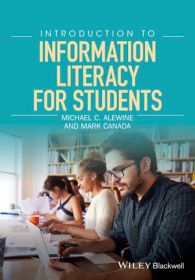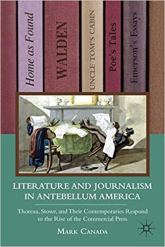 How can students and the rest of us ensure that we are finding the truth when we conduct research? Our new textbook, Introduction to Information Literacy for Students, provides an accessible discussion of information literacy, reviews basic strategies for finding and evaluating information in both print and electronic resources, and offers practical tips for selecting topics, managing research projects, developing key words, navigating databases, ordering items through interlibrary loan, using an index, taking notes on sources, incorporating source material into a report, and more.
How can students and the rest of us ensure that we are finding the truth when we conduct research? Our new textbook, Introduction to Information Literacy for Students, provides an accessible discussion of information literacy, reviews basic strategies for finding and evaluating information in both print and electronic resources, and offers practical tips for selecting topics, managing research projects, developing key words, navigating databases, ordering items through interlibrary loan, using an index, taking notes on sources, incorporating source material into a report, and more.
 Can fiction ever tell the truth? Some notable American writers, including Edgar Allan Poe and Harriet Beecher Stowe thought so. Literature and Journalism in Antebellum America examines print culture in the United States between 1833 and 1861, when the simultaneous rise of the mainstream press and the advent of the American Renaissance combined to create a sibling rivalry, in which authors excoriated and ridiculed journalism, defended their own versions of the truth, and crafted “news of their own” in works such as Walden and Uncle Tom’s Cabin.
Can fiction ever tell the truth? Some notable American writers, including Edgar Allan Poe and Harriet Beecher Stowe thought so. Literature and Journalism in Antebellum America examines print culture in the United States between 1833 and 1861, when the simultaneous rise of the mainstream press and the advent of the American Renaissance combined to create a sibling rivalry, in which authors excoriated and ridiculed journalism, defended their own versions of the truth, and crafted “news of their own” in works such as Walden and Uncle Tom’s Cabin.
 What are some connections between literature and journalism? Literature and Journalism: Inspirations, Intersections, and Inventions from Ben Franklin to Stephen Colbert features essays by David Reynolds, Andie Tucher, Carla Mulford, and others, along with my historical overview.
What are some connections between literature and journalism? Literature and Journalism: Inspirations, Intersections, and Inventions from Ben Franklin to Stephen Colbert features essays by David Reynolds, Andie Tucher, Carla Mulford, and others, along with my historical overview.
What’s even more important than knowing how to find the truth? Listen to “The Danger of ‘Fake News,'” my podcast for The Academic Minute.
What did Henry David Thoreau think of journalism? He wasn’t exactly a great admirer. Read “Henry David Thoreau’s views of 19-century media resonate today,” my article for The Conversation.